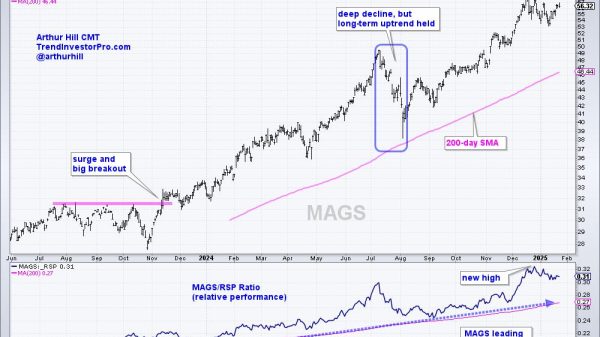In the world of digital marketing, driving traffic to your website is only half the battle. The real challenge is converting that traffic into leads, customers, or sales.
This is where SEO analytics comes into play. By understanding how users find your website, interact with it, and convert, businesses can refine their SEO strategies to improve both rankings and revenue.
What is SEO Analytics?
SEO analytics is the process of gathering, analyzing, and interpreting data related to your website’s search engine performance. It involves tracking various metrics such as keyword rankings, organic traffic, bounce rates, time on site, and, most importantly, conversions.
By analyzing this data, businesses can identify what’s working and what needs improvement in their SEO strategy. For instance, if a page ranks well for a particular keyword but has a high bounce rate, it could indicate that the content isn’t meeting user expectations.
Understanding SEO analytics allows businesses to make data-driven decisions that can increase traffic and conversions, leading to higher ROI (return on investment) for their SEO efforts. While many businesses try to handle keyword research on their own, partnering with an SEO agency can offer significant advantages. SEO agencies have access to advanced tools and insights that allow them to uncover valuable, often overlooked insights that can drive traffic and conversions.
The Importance of Keywords in SEO
Keywords are the foundation of any successful SEO strategy. These are the words or phrases that users type into search engines when they’re looking for products, services, or information. By optimizing your website content around relevant keywords, you increase the likelihood that your site will appear in search results when users search for those terms.
How to Identify the Right Keywords
The process of identifying relevant keywords starts with keyword research. This involves using tools like Google Keyword Planner, Ahrefs, or SEMrush to find the terms that your target audience is searching for. These tools provide data on search volume, keyword difficulty, and how competitive certain keywords are.
When selecting keywords, it’s essential to strike a balance between high search volume and low competition. Long-tail keywords, which are more specific phrases like “best running shoes for flat feet,” tend to be less competitive and can lead to higher conversion rates because they attract users who are closer to making a purchase decision.
Tracking and Analyzing User Behavior
Once you’ve identified the right keywords and optimized your content, the next step is to track how users are interacting with your site. This is where analytics tools like Google Analytics come into play.
Key User Behavior Metrics to Track
Organic Traffic: This refers to the number of visitors who find your site through search engines. By monitoring organic traffic, you can gauge the effectiveness of your SEO efforts.
Bounce Rate: This measures the percentage of visitors who leave your site after viewing just one page. A high bounce rate may indicate that your content isn’t relevant to the keyword you’re targeting or that your website isn’t user-friendly.
Average Session Duration: This metric shows how long users stay on your site. Longer session durations often indicate that users are engaging with your content.
Pages Per Session: This measures the average number of pages a user views during a single session. A higher number of pages per session suggests that users are finding your content valuable and are exploring your site further.
By analyzing these metrics, you can identify potential roadblocks that prevent users from converting. For example, if a particular page has a high bounce rate, it may need better content, clearer calls to action, or improved load speed.
Conversion Tracking in SEO Analytics
Conversions are the ultimate goal of SEO. A conversion can be anything from a user filling out a contact form, making a purchase, signing up for a newsletter, or downloading a whitepaper. Tracking conversions is essential to understanding the effectiveness of your SEO strategy.
How to Set Up Conversion Tracking
Tools like Google Analytics make it easy to set up and track conversions. You can define different types of conversions (called “goals” in Google Analytics), such as:
Lead form submissions
Product purchases
Newsletter sign-ups
Downloads of resources (e.g., eBooks, case studies)
By setting up conversion tracking, you can see which keywords, pages, and traffic sources are driving the most conversions. This data allows you to focus your efforts on the areas that are delivering the best results, helping you to optimize your content and marketing strategy accordingly.
Conversion Rate Optimization (CRO)
Once you have enough conversion data, you can start focusing on Conversion Rate Optimization (CRO). CRO involves making adjustments to your website to increase the percentage of visitors who convert. These adjustments could include:
Improving website design and navigation
Creating clearer, more compelling calls to action
Testing different landing page formats or offers
Ensuring that your site is mobile-friendly
CRO is an ongoing process, and small tweaks can often lead to significant increases in conversion rates over time.
The Role of an SEO Agency in Managing SEO Analytics
While setting up and managing SEO analytics can be done in-house, many businesses benefit from partnering with an SEO agency. An experienced SEO agency can help set up advanced tracking systems, interpret data, and make strategic adjustments to maximise conversions.
For example, an SEO agency can provide insights into why certain pages aren’t performing well, suggest content improvements, and implement technical SEO fixes that can improve user experience and search engine rankings. Additionally, agencies have access to the latest tools and trends in SEO, which can give businesses a competitive edge.
How to Use SEO Analytics to Refine Your Strategy
SEO is not a one-time effort but an ongoing process. To stay competitive, you need to continually analyze your performance and refine your strategy. SEO analytics helps businesses:
Identify High-Converting Keywords: Through conversion tracking, you can see which keywords are driving the most valuable traffic and adjust your content accordingly.
Improve Underperforming Pages: If certain pages have high bounce rates or low conversion rates, you can update the content, test different designs, or add new calls to action.
Track the Impact of Algorithm Updates: Search engine algorithms are constantly evolving. By monitoring your SEO analytics, you can identify when an algorithm update has affected your site and adjust your strategy to mitigate any negative impacts.
From keyword research to conversion tracking, SEO analytics is the key to transforming your SEO efforts into tangible business outcomes. By continually analyzing and optimizing your website’s performance, you can ensure that your SEO strategy is not only driving traffic but also contributing to your bottom line.
Read more:
From Keywords to Conversions: A Deep Dive into SEO Analytics























